Politics
/ArcaMax
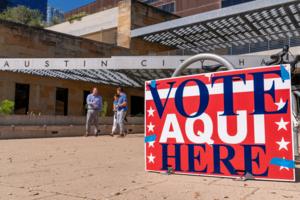
Commentary: What's missing from the Latino vote debate? The voice of Latinas
Postelection analyses continue to ignore the political and economic power of Latinas. The big story about the Latino vote is that the electoral bets the Trump and Harris campaigns made to galvanize men of color paid off for MAGA extremists. But both candidates’ willful neglect of Latina voters is another threat to American democracy.
Many are...Read more
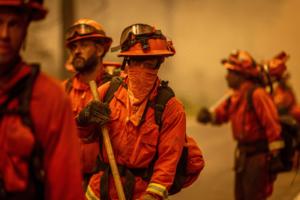
Editorial: California voters rejected an anti-slavery measure to end forced prison labor. Now what?
Proposition 6, the ballot measure that would have amended the California Constitution to prohibit involuntary servitude in prison, failed. That’s troubling. Do voters really believe forced prison labor is acceptable?
The state Constitution (like its federal counterpart) has long outlawed slavery and involuntary servitude except “to punish ...Read more
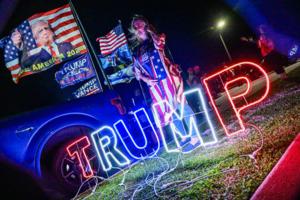
Commentary: The fights over culturally divisive issues in schools? They cost billions that could be spent helping kids
Education policy received little to no attention during much of the presidential campaign. But, in the final phase, Donald Trump was asked during a “Fox & Friends” interview how he would fix schools. His reply: “No transgender, no operations.… There are some places, your boy leaves the school, comes back a girl.”
That was a lie. But ...Read more
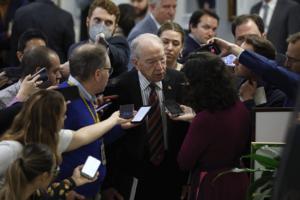
POINT: A federal shield law is needed to protect the press
Like it or not, the Constitution’s First Amendment gives the media special protection in the American republic. That amendment says, “Congress shall make no law … abridging the freedom … of the press.”
With one of the recent presidential candidates unconstitutionally threatening to shut down media outlets or take away their (...Read more
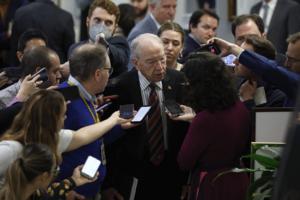
COUNTERPOINT: Reporters shouldn't have more First Amendment rights than the rest of us
Do reporters have more rights under the First Amendment than ordinary Americans? Should they?
The answer to both questions is “no.” Unfortunately, a bill passed by the House of Representatives and is sitting in the Senate wants to change that.
The PRESS Act would allow the media to operate outside the law and withhold information vital to ...Read more

Commentary: Federal judge invalidates overtime rule that threatened millions of workers and employers
Employers and workers may not realize it, but they just dodged a bullet.
They can thank a federal judge in Texas who just tossed out a Biden administration rule that tried to increase the salary threshold for overtime pay by 65%, from $35,568 to $58,656 per year (a range that includes about 12 million workers). That new threshold would have ...Read more

Matthew Yglesias: If Trump dismantles the Education Department, he'll regret it
After winning the presidency by focusing on immigration, inflation and a vague notion that life was better in 2019, Donald Trump is widely expected to proceed with plans to … eliminate the Department of Education. It’s hard to see how this makes sense — for him, his party or the country.
The Department of Education is not above criticism,...Read more
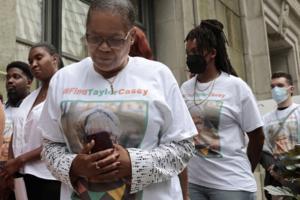
Commentary: A Black trans Army veteran vanished in the Bahamas. Why won't her country help find her?
Five months ago, Taylor Casey, a 42-year-old Black trans woman from Chicago, vanished from a popular tourist destination, the Sivananda Yoga Retreat Center Bahamas, an ashram once endorsed by Gwyneth Paltrow’s wellness company Goop.
Casey is not just a statistic. She is an Army veteran who served her country and a leader who served her ...Read more
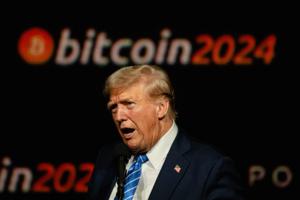
Editorial: Crypto's coming back. Here's how to avert disaster
The crypto party seems to be getting restarted. Bitcoin is surging and big players are celebrating amid expectations that President-elect Donald Trump will make the U.S., as he put it, “the crypto capital of the world.”
Lest this experiment go awry, regulators need to keep some guardrails in place.
In its current incarnation, crypto has at...Read more

Editorial: The Pentagon still can't pass a basic audit
Elon Musk and Vivek Ramaswamy will have no shortage of targets when they burrow into the bureaucracy in an effort to make the federal government more efficient and cost effective. But one quarry stands out: the Pentagon.
Last week, the Department of Defense failed its seventh audit in a row, unable to account for portions of its $824 billion ...Read more
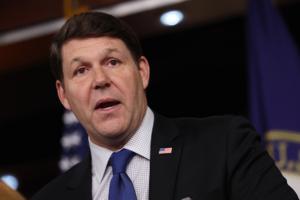
Michael Hiltzik: GOP targets Medicaid with the return of a terrible idea
In any contest to name the cruelest and most useless health care "reform" favored by Republicans and conservatives, it would be hard to beat the idea of applying work requirements to Medicaid.
Yet, it's back on the table, teed up by congressional Republicans as a deficit-cutting tool.
In a rational world, this idea would have been consigned to...Read more

Robin Abcarian: Will Congress give Trump the ability to kill organizations like Planned Parenthood and ACLU?
President-elect Donald Trump has said repeatedly that he will invoke the Insurrection Act so the American military can round up migrants for his program of mass deportations and suppress political protests.
In his first term, Trump wondered aloud why soldiers couldn't just shoot Black Lives Matter protesters, former Defense Secretary Mark Esper...Read more

Commentary: Automation could be a problem in retail theft
Headed into the holiday season, the retail industry is wrangling with a surge in shoplifting and possible solutions to prevent theft. The upsurge may be an inadvertent consequence of another trend: automation.
With stores now having fewer people minding them, thieves have felt emboldened. Trade groups are pushing for new federal legislation to...Read more

Commentary: Meet California's most neglected group of students with special needs: the gifted ones
Schools have generally been working hard to meet the special educational needs of an array of students — those with learning disabilities, those learning English, those with behavioral issues and those whose households struggle with poverty. But they have widely neglected one major group of students with special needs: the academically gifted....Read more

Commentary: Thanksgiving dinner at the grown-ups' table
With our national elections the first week and Thanksgiving the last week, November is a banner month for Americans. On Nov. 5 we voted, electing Donald J. Trump to become our 47th president and arguably the most powerful person on the planet. Now we look forward to Thanksgiving.
Somewhere in each of our past Thanksgivings, there likely came a ...Read more
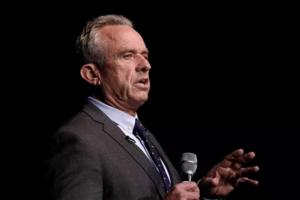
Michael Hiltzik: Trump's appointment of anti-vaxxer RFK Jr. to his Cabinet has scientists fearing a catastrophe for public health
In a tweet he posted shortly before the election, Robert F. Kennedy Jr. took arms against the Food and Drug Administration and its scientists.
"The FDA's war on public health is about to end," he wrote, decrying the agency's "aggressive suppression" of such worthless anti-COVID nostrums as ivermectin and hydroxychloroquine.
"If you work for ...Read more

Commentary: Can Donald Trump help resolve the conflicts in the Middle East?
Donald Trump talked a lot about inflation, immigration and crime during his two-year campaign for the presidency. Indeed, his third bid for the White House was predicated on those three issues. But Trump wasn’t shy on another issue that has far less resonance with the American electorate generally: peace in the Middle East. On occasions, Trump...Read more

Commentary: Male insecurity and the election
Donald Trump recently said he would protect women, whether they like it or not. What did he mean by this? What is implied by this? It is an important statement and, unfortunately, tells us a great deal about why Trump won the election and his priorities as president.
For the last several years, leading Republicans have warned that there is a ...Read more

Editorial: Time for post-election sanity: Approve Nippon-US Steel deal
Every knowledgeable observer of the Nippon Steel-U.S. Steel drama knows that the politics of the presidential election had warped what should have been a simple decision: to approve the best available offer for the legacy American steel company, and the only one likely to keep steel manufacturing in the Steel City.
With the election and all its...Read more

FD Flam: Trying to quantify everything is hurting our decisions
The usual rule of thumb is that stories sell; data doesn’t. But new research suggests that’s not necessarily true. Contrary to the conventional wisdom that numbers are dull and uninspiring, numbers dominate our decisions — on what to buy, whom to hire and where to donate money.
A paper published last month in the journal PNAS shows that ...Read more


























































